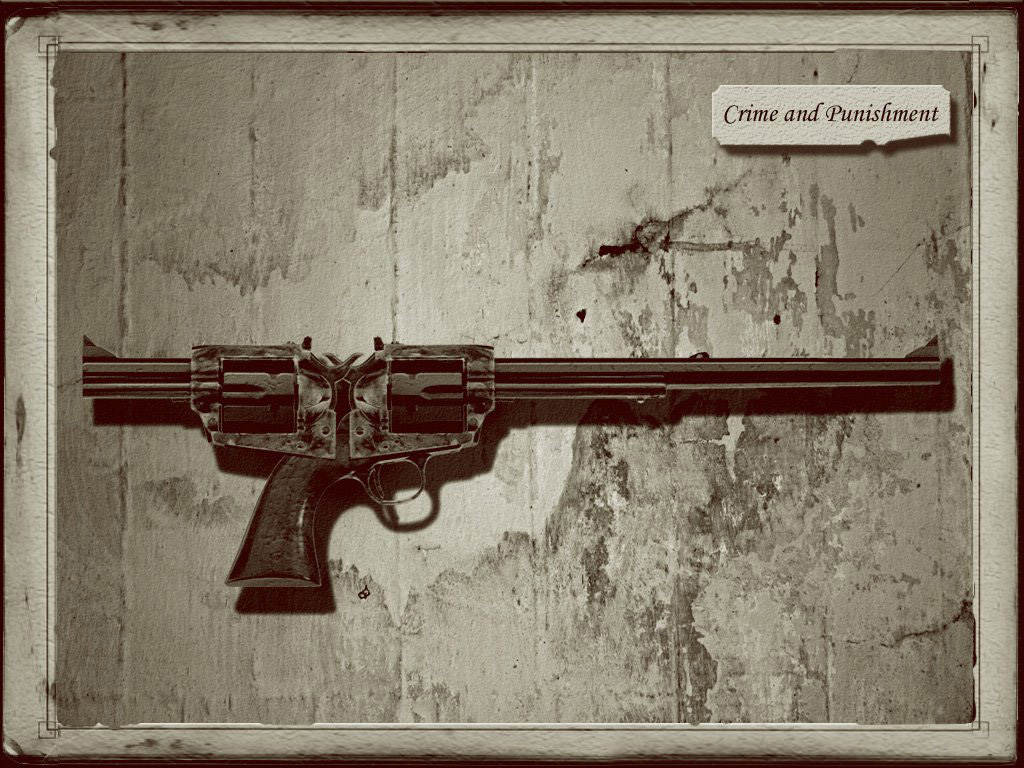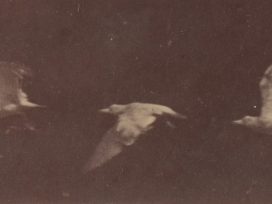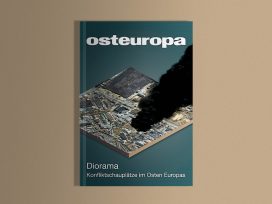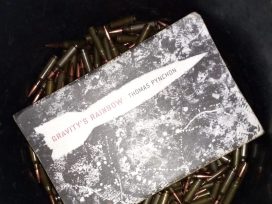Don’t cry for me, Dostoevsky
In true Stalinist manner, Russian culture is being weaponized in the war against Ukraine. But instead of cancelling Russian writers, should we read them with a critical eye – just like other European classics?
In early March, the University of Milan-Bicocca reacted to the Russian war against Ukraine by cancelling a seminar on Dostoevsky. This peculiar stand against Russian imperialism provoked a heated discussion among academics and intellectuals. The seminar was taught by the writer Paolo Nori, who instantly became famous. For a few days, the Italian intelligentsia treated the scrapping of the seminar as an event of utmost importance – eclipsing even the actual war in Ukraine.
Those demanding the immediate reinstatement of the seminar had apparently forgotten their literary idol’s observation that ‘the happiness of the whole world is not worth the tear of a child’. Fortunately for everybody, Dostoevsky was quickly rehabilitated and the clumsy censors put to shame.
As frivolous as the academic brouhaha may seem, it does raise an important question: what ought we to do now with Russian culture?

Composition based on Dostoevsky’s Crime and Punishment. Image by George Grie via Wikimedia Commons.
Vladimir Putin and the majority of the Russian population supporting his war in Ukraine seem to have passed a point of no return. The international response often includes the names of two European cities: Nuremberg and The Hague. There is mounting evidence that Putin and his enablers are guilty of crimes against humanity. However, the accountability of the Russian people provokes many questions.
Like ordinary Germans under the Nazi regime, Russians have been stupefied by propaganda and tempted by the siren song of militaristic nationalism. They have no idea – and don’t really want to know – what is happening in Ukraine or the rest of the world. For that matter, Russians aren’t particularly interested in what is happening in Russia. The minority of the population that bravely opposed the invasion, despite the long odds of changing the political balance, have faced severe repression. The cult of heroism in World War Two has replaced the truth of a pan-Soviet victory borne of universal sacrifice with a victory march of exclusively Russian toy soldiers. Since 9 May 2015, the seventieth anniversary of Victory Day, car stickers reading, ‘We can do it again!’ have become a common sight, more often than not on the German brands so popular with Russian drivers.
The invasion of Ukraine has indeed given Russia the opportunity to repeat World War Two. But in the current iteration, they’re fighting on the wrong side. Images of the Russian invasion of Ukraine provoke many associations, but one above all: Wehrmacht columns marching through ruined Ukrainian villages in June 1941.
Today the facades of buildings in many Russian cities bear enormous banners with the letter ‘Z’, the marking on the tanks and military vehicles moving towards Kyiv. Whether or not the children lining up to form the letter ‘Z’ in the yard of their orphanage grow up to regret the role they played in Putin’s war, the discussions of collective guilt so prevalent in the wake of the Second World War seem all but inevitable in Russia’s future.
But back to Dostoevsky. We cannot blame the great writer for the assault on Ukraine. But we can point the finger at Putin’s ideologues, whose exploitation of Russian culture is at the heart of the current troubles. The West’s blindness to this exploitation also bears examination.
The Russian regime’s distortion and abuse of the nation’s cultural heritage is hardly unique. We’ve seen this before. In my library, there’s a book printed on cheap yellowish paper entitled Blut und Boden. It was issued by the Wehrmacht to entertain and inspire German soldiers at the front. The book includes excerpts from Goethe, Schiller and other great German writers. With a few simple manipulations, the Nazis turned national classics into weapons of war.
Putin’s ideologues have a slightly different approach. Instead of purging undesirable writers, the way the Nazis did with Heinrich Heine or Thomas Mann, they’ve done the opposite and are appropriating everything into an all-inclusive new hagiography. In this Russian pantheon, Vladimir Nabokov is a close neighbour of Aleksey Tolstoy, a gifted writer nicknamed the ‘Comrade Count’ who became the literary servant of Stalin. Ivan Ilyin, the fascist philosopher admired by Putin, sits next to Nikolai Berdyaev, the theologian and believer in the existential importance of human freedom. Osip Mandelshtam, the greatest Russian poet of the twentieth century murdered in the Gulag, fraternizes with Sergey Mikhalkov, a crafty versifier who composed the lyrics of the Soviet anthem for Stalin and then amended them for Putin. This surreal literary ‘dream team’ isn’t cast in terms of ‘culture’ but ‘Russian civilization’, a concept justified by Spengler, Toynbee and other dusty western theoreticians.
Of course, the sole purpose of this pantheon is to demonstrate and reinforce the greatness of the Russian state. Ironically, the denizens of this Putinist Mount Olympus mostly spent their lives locked in a mortal struggle with that very state in its various manifestations. But that’s neither here nor there.
The Moloch of Russian ‘civilization’ devours everything in its path. Stripped of any revolutionary meaning, the art of Kazimir Malevich and other avant-gardists makes the perfect backdrop for the Sochi Winter Olympics – or as decoration for the lounge at Moscow’s Sheremetyevo Airport. Dmitry Shostakovich’s ‘Leningrad’ Symphony, premiered in the city during the siege in 1942, accompanies the celebration of Russian victory against Georgia on the central square of the Ossetian city of Tskhinvali, a stone’s throw from a prisoner of war camp. Conducted by Valery Gergiev, the performance proved such a propaganda success that the encore was played amidst the ruins of Palmyra, Syria, in 2016.
The acme of this historical relativism is Moscow city council’s decision to erect a monument to Andrei Sakharov, the fearless Soviet dissident, twelve days before the beginning of the invasion of Ukraine – and fifty-eight days after the banning of Memorial, the organization established by Sakharov to research and document the history of Soviet repressions. Sakharov will now find himself in the company of other Russian heroes such as Mikhail Kalashnikov, whose ubiquitous machine gun has been the source of so much human misery.
One fine day, when Putin departs Moscow for The Hague, Russians will face the biblical task of separating their cultural sheep from the goats. One hopes they’ll have the wherewithal to restore their fictional ‘civilization’ to its proper status as national culture, warts and all. This will be a new experience. They’ve never really looked at their classics from a postcolonial point of view, or had an ear for the imperialist undertones of their great novels and poems.
Since the late 1920s, the fetishism of Russian literature has been an essential element of the Stalinist cultural model. The great Soviet satirists Ilya Ilf and Evgeniy Petrov ridiculed this leap backward under the pen name F. Tolstoevsky. In Putin’s Russia, Tolstoevsky seems to have been resurrected.
So what to do about Dostoyevsky? Let’s continue studying his novels, but in the context of his time. Let’s not forget that this great Russian writer was a rabid anti-Semite and a hater of Poles. Instead of peddling orientalizing fairy tales about the ‘Russian spirit’, let’s watch the evening news, where the actual Russian spirit is making itself manifest on the world stage. Let’s return Dostoevsky to the nineteenth century, another dead white man of the European literary canon, no better or worse than his French, German or British contemporaries.
Published 4 April 2022
Original in English
First published by Eurozine
© Konstantin Akinsha / Eurozine
PDF/PRINTNewsletter
Subscribe to know what’s worth thinking about.
Related Articles

Whether defending human rights on an international stage, checking facts from the frontline, processing traumatic experiences over a lifetime, or even questioning the language you have spoken since childhood – all matter in the collective fight for justice.

Time to live
Ukrainian cuisine, literature and cafés
Defending territory in war expands beyond physical frontlines to include cultural ground. Reclaiming signature dishes, language and public space contests their colonial assumption. Upholding traditions and retaining small home comforts takes on greater significance.





